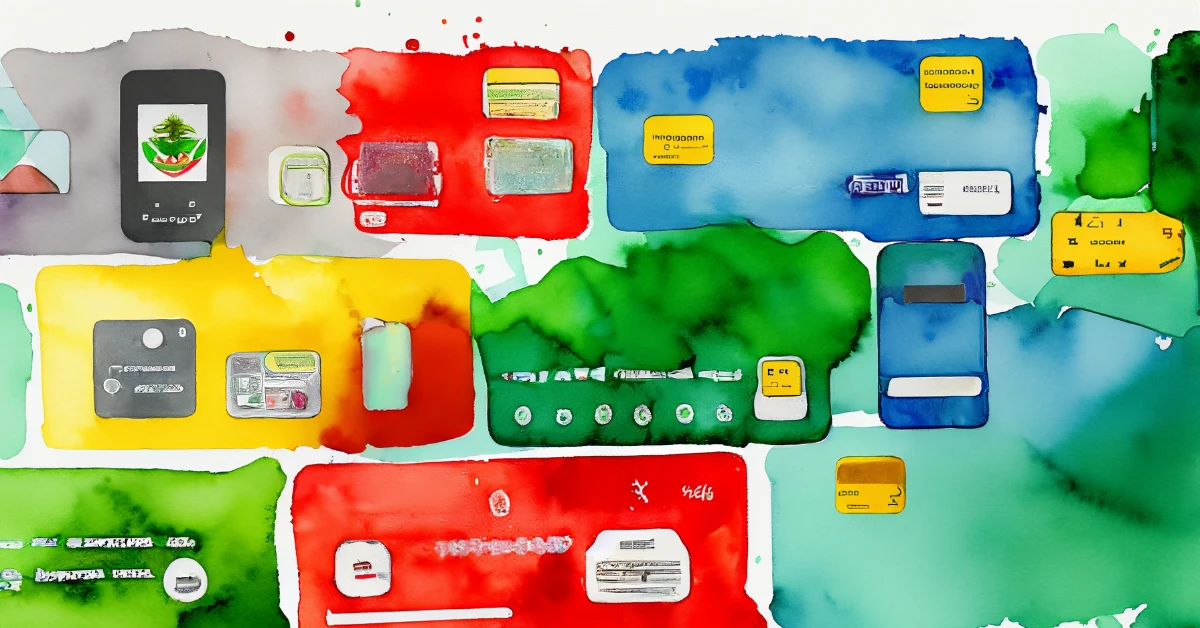Mexico's Most Preferred Alternative Payment Methods
We're often asked what payment and payout methods are most preferred in a particular market. As we're focusing on Mexico this week, this is a perfect...

Updated: 2 April 2024
With the payout orchestration landscape changing as quickly as it is, keeping up with various technology and services available is becoming increasingly challenging. Of these changes, seven emerge as notable, and this article will explore them in detail:
First, however, it's also worth mentioning why MassPay's global payout orchestration platform is the ideal choice to help you manage these changes in your business.
Our platform offers a comprehensive, unified payment solution that enables businesses to send/receive payments from anywhere in the world using various payment options, currencies, and methods.
Now let's examine each of the seven notable changes affecting the payout orchestration landscape:
A significant majority of the global population has a smartphone (almost 87% by current estimates), and many use their mobile devices to make payments virtually anytime and anywhere. Now, this capability is something people have come to expect from businesses.
Convenience is a significant driver of the rise of mobile payments—users can purchase products or services or send money without carrying cash or credit cards. This is particularly valuable for those without access to traditional banking services due to their location or other factors.
Their enhanced security features also influence how mobile payments change the payment landscape. Often, mobile payments require users to authenticate their transactions using biometric features such as fingerprint or facial recognition for an added layer of security.
Consumers not only expect these features but can also boost brand loyalty, as customers are more likely to trust businesses that offer a secure payment method.
Bitcoin's explosive growth has also undeniably affected the payout orchestration landscape.
One of the critical ways Bitcoin has made an impact is by providing a decentralized and borderless payment system—one that operates outside of traditional financial institutions. This has made it easier to send and receive payments globally, eliminating the need for intermediaries.
Along with Bitcoin's growth, the emergence of other cryptocurrencies and blockchain-based payment systems, which offer similar benefits in payment processing, have further shaped the payout orchestration landscape.
In turn, payout orchestration providers must adapt to accommodate the changing landscape and provide support for cryptocurrencies and blockchain-based payment methods.
Bitcoin's growth is also changing the payout orchestration landscape by creating new opportunities for cross-border payments. These are traditionally expensive and slow, but Bitcoin has sped things up. In addition, their decentralized and borderless nature enables individuals and businesses to send and receive payments across borders quickly and at lower costs.
Online payments are also rapidly growing in popularity with sites like PayPal, Stripe, Venmo, and Square. This shift has seen businesses move from accepting cash or credit cards to a more digital payment system.
For many reasons-including an effort to limit physical contact-digital payments have grown over the past few years with no signs of slowing down. In fact, we're seeing quite the opposite.
Consider these predictions for the digital payment market from The Digital Journal:
The market is expected to be worth US$19.89 trillion by 2026, representing a compound annual growth rate (CAGR) of 24.4%
Like many other trends changing payout orchestration, convenience is a big reason online payments have been as impactful as they are. Online payments make payments faster, more convenient, and more accessible to a global audience.
Not to mention, they can be made anywhere in the world, at any time of day, helping businesses operate globally and reach customers in different countries.
The rise of online payments also contributes to more stringent security and fraud prevention measures. For example, many online payment providers use advanced encryption and fraud detection technologies to protect customers' data and prevent unauthorized transactions.
We can't discuss the changing payout orchestration landscape without including cloud-based payment solutions in the conversation.
Cloud computing helps businesses store and access hefty amounts of data, making it easier to process payments on a massive scale. Further, cloud-based services are often more secure than traditional methods—they can store customer data in numerous locations (rather than one physical location). This lowers the risk of data loss due to theft or natural disasters.
Plus, cloud-based services also make it easier for businesses to scale quickly-helping them ramp up their operations if need be-and also reduce costs associated with hardware purchases and maintenance.
In short, cloud-based payments are helping reshape the payout orchestration landscape by making payments faster and more secure while simultaneously reducing the costs associated with traditional payment systems.
We've touched on cross-border payments already, but covering them in greater detail is worth covering as they also contribute to the changing payout orchestration landscape.
Sending money from one country to another is notoriously expensive and slow. Fortunately, this is starting to change with the rise of digital technologies.
Now, it's not only faster and safer to send cross-border payments, but it can be much less expensive too. Moreover, with faster transfer speeds, it's easier for businesses to operate on a global scale so they can effectively reach customers in different countries.
These benefits are game-changing for small businesses that don't have the resources to expand physically. Cross-border payments help them operate globally without investing heavily in setting up physical branches worldwide.
Finally, cross-border payments offer better exchange rates and a more transparent fee structure. Now, they're often more cost-effective than traditional money transfer services. Along with being cheaper, they can also be more secure, allowing customers to track their transactions in real time.
With all these changes, it's no surprise the remittance industry has also experienced a surge in growth.
The remittance market size is expected to reach "USD 107.80 billion by 2030, growing at a CAGR of 10.1% from 2022 to 2030."
With the rise of digital technologies, remittances are faster and more secure than ever. For instance, many online payment providers offer fast transfers free of charge or lower fees, allowing customers to send money quickly and cheaply.
With the growth of the remittance industry has also come a growing need to govern global remittance processes. Governments, businesses, and individuals must come together to ensure remittances are secure and compliant with international regulations.
This is proving to be a key challenge facing the remittance industry. The solution involves a robust and transparent governance framework to oversee and manage the various processes involved in remittance.
These processes include:
Various organizations and government bodies have developed governance frameworks and guidelines for the remittance industry to address these challenges.
One example is the Financial Action Task Force (FATF). They have developed a set of recommendations for anti-money laundering and counter-terrorism financing measures. These recommendations guide governments, financial institutions, and other stakeholders involved in the remittance industry.
In many countries, regulatory bodies oversee and manage the remittance industry within their borders. These regulatory bodies enforce relevant laws and regulations and ensure remittance providers comply with necessary licensing and reporting requirements.
Last but not least, the changing payout orchestration landscape includes a growing need for various payment and payout methods. Previously, businesses used only one or two payment and payout methods—such as credit cards, bank transfers, and cash.
However, with the frequency of online payments and mobile payments, businesses must now be able to offer customers different options for sending money.
This could include:
At the same time, businesses must be confident that these payment and payout methods are secure and compliant with relevant regulations. For example, in many countries, companies must verify their customers' identities and identity documents before allowing them to send or receive payments.
This brings us back to how MassPay can help. Our platform makes it easy for businesses to manage their payments and payouts—offering customers different payment methods, such as credit cards, bank transfers, digital wallets, cryptocurrency (Bitcoin), and more.
We also provide comprehensive compliance tools and features, including our one-time Know Your Business (KYB) process—a single path to open up a world of payout possibilities.
With MassPay, you can manage your payments and payouts securely and compliantly in one easy-to-use platform.
The changing payout orchestration landscape means businesses can capitalize on plenty of opportunities if they prepare for the challenges ahead. By leveraging a comprehensive solution like MassPay, you can keep up with the changing landscape while remaining compliant and secure.
Schedule a demo today.

We're often asked what payment and payout methods are most preferred in a particular market. As we're focusing on Mexico this week, this is a perfect...

2023 is moving, quickly. We're beginning conversations with our customers and partners about 2024 plans and strategies, the payments landscape in the...

Unpredictable. Unexpected. The past few days have been no good, very bad days for a lot of people and, quite frankly, it sucks. Being prepared for...